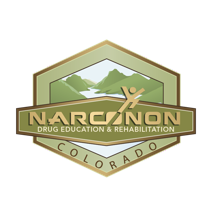Maintaining Sobriety During College

When people think of the word “college” many things come to mind apart from the educational aspect. Parties, binge drinking and experimenting with drugs have all become a common aspect of the college experience. While not everyone drinks to excess or uses drugs during this time in their lives it can still be difficult to navigate the college lifestyle while living a life of sobriety. In response to the increased need for addiction recovery support services, many college campuses across the country are working on helping to address this important issue.
A person shouldn’t have to choose between their sobriety and getting an education. So how does a person in addiction recovery participate in the college atmosphere while maintaining their sobriety? Connecting with support groups and finding other people who are going through a similar experience are some good places to start.
The Association of Recovery in Higher Education (ARHE) exclusively represents Collegiate Recovery Communities (CRCs) across the United States. These programs provide substance-free living environments, sober social events, and counseling. They help to create a supportive community that is conducive to living a life of recovery during college. As of 2018, there were 186 campuses across the United States registered with ARHE that provided college recovery programs.
Another option that many people take is finding private housing off-campus. Sometimes just getting away from the dorm atmosphere can make a big difference. Some colleges provide a completely sober community and have rules against alcohol consumption by their students. Fortunately, there are several options available to those who wish to earn a degree while simultaneously maintaining their sobriety.
Oftentimes the best first step to take towards overcoming an addiction is to find an effective residential treatment program to establish a solid foundation for a life of sobriety. A good program will focus on addressing the underlying issues that lead to substance abuse in the first place and developing effective life skills to handle the stresses of everyday life. Once a person effectively handled their addiction in this type of setting they will be better equipped to maintain their sobriety in a college atmosphere.
The elephant in the room that many people do not want to address is that a person does not need to be an addict to experience the negative consequences of drinking or using drugs. It really can take one time to completely alter the rest of a person’s life. Perhaps if more people were open about the reality of negative experiences from drugs and alcohol there would be less substance abuse across college campuses. Because of this, sober communities are not only a beneficial resource for those who have had an addiction but for the college community as a whole. If you or a loved one have struggled with substance abuse or addiction in the past and are looking at taking the next step in higher education, take the time to research the best option for your situation.

Living a life of recovery does not mean that a college degree is no longer an option. If anything, having a sober college experience can lead to greater collegiate success than participating in the “traditional” party lifestyle.
Resources:


